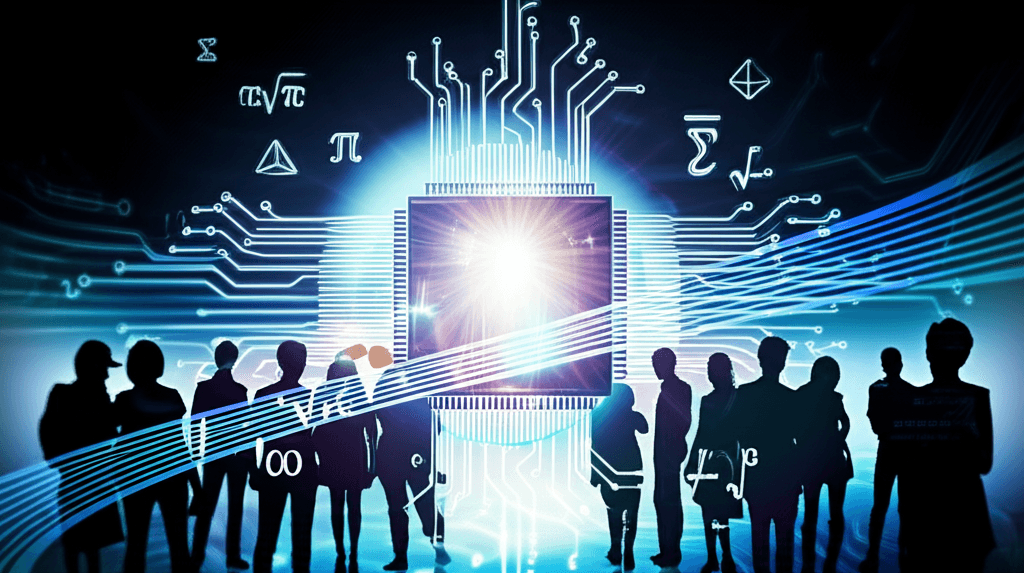PhysicsWallah's Aryabhata 1.0 Aces India's Toughest Math Exam
PhysicsWallah's Aryabhata 1.0: A compact AI trained to excel in JEE math, democratizing access to top-tier preparation.
July 22, 2025

In a significant move to integrate artificial intelligence into the highly competitive landscape of Indian entrance examinations, the ed-tech platform PhysicsWallah has unveiled Aryabhata 1.0. This specialized AI model is engineered to assist students in preparing for the mathematics section of the Joint Entrance Examination (JEE) Main, one of the most challenging engineering entrance exams in the country. Named in honor of the classical Indian mathematician, this initiative signals a broader push towards creating bespoke AI solutions for the specific needs of Indian learners, potentially reshaping the educational technology sector. The model has already demonstrated impressive capabilities, scoring 86% in a mock January 2025 JEE Main session and improving to 90.2% in a subsequent April session.[1][2] This development arrives at a time when AI is increasingly being recognized as a transformative tool in education, offering personalized and accessible learning pathways for millions of students.[3][4][5]
The technical foundation of Aryabhata 1.0 is a 7-billion-parameter causal decoder-based model, which is notably compact compared to larger, more generalized language models.[2] This smaller size, what is often referred to as a Small Language Model (SLM), allows for more efficient and focused training.[1] The development process, conducted by Physics Wallah AI Research, involved a multi-stage training pipeline. It began with model merging, combining the capabilities of robust math-centric language models like Qwen 2.5 Math and DeepSeek R1 Distill Qwen to create a strong initial model.[2] Following this, the model was fine-tuned using a proprietary dataset of approximately 130,000 problem-solution pairs curated from PhysicsWallah's internal exam data.[2][1] This data underwent aggressive filtering to remove elements like diagram-based or non-English questions, ensuring it matched the distribution of questions from past JEE Main exams.[2] Advanced techniques such as Supervised Fine-Tuning (SFT), Rejection Sampling, and a custom variant of Reinforcement Learning with Verifiable Rewards (RLVR) were employed to enhance the model's reasoning and align its problem-solving patterns with pedagogical best practices.[2] This meticulous training on a single NVIDIA H100 GPU makes Aryabhata 1.0 not only accurate but also compute-efficient, a crucial factor for scalable deployment in the ed-tech space.[2]
The launch of Aryabhata 1.0 is a cornerstone of PhysicsWallah's larger AI strategy, encapsulated by its "Alakh AI" education suite.[6] This suite, which has already garnered over 1.5 million users in its initial months, aims to provide personalized, engaging, and effective learning experiences.[6][7] Other tools within the Alakh AI ecosystem include AI Guru, a 24/7 academic companion that can handle both academic and non-academic queries, and Sahayak, which assists students in creating tailored study plans based on their academic profiles and exam goals.[8][7] These tools are built on powerful technologies like OpenAI's GPT-4o, Retrieval-Augmented Generation (RAG) architecture, and are continuously updated by subject matter experts to ensure the information is current.[9][8][7] The overarching goal is to make quality education more accessible, particularly for students in Tier 2 and Tier 3 cities, who constitute a significant portion of PhysicsWallah's user base.[7] By leveraging AI, the platform aims to address challenges like the shortage of teachers and the high cost of traditional coaching, making top-tier exam preparation more affordable and readily available.[9]
The introduction of specialized AI models like Aryabhata 1.0 into the domain of competitive exam preparation has profound implications for the AI and ed-tech industries. It signifies a shift from general-purpose large language models to highly specialized SLMs tailored for specific, high-stakes applications. This approach allows for greater accuracy and efficiency within a defined domain, as demonstrated by Aryabhata's performance on JEE Main math problems. The success of such models could spur further investment and research into domain-specific AI for other subjects and competitive exams like the NEET for medical school aspirants. Furthermore, the accessibility and affordability of AI-powered tutors could democratize education, leveling the playing field for students from diverse economic and geographical backgrounds who may not have access to expensive coaching centers.[9][10] While some express concerns about an over-reliance on AI potentially diminishing critical thinking skills, proponents argue that these tools can enhance learning by providing instant feedback, identifying knowledge gaps, and allowing students to work at their own pace.[4][11] The collaboration between educational institutions and tech companies, such as PhysicsWallah's partnership with Microsoft Research to enhance its AI tutoring services, will be crucial in navigating these challenges and realizing the full potential of AI in education.[9]
In conclusion, PhysicsWallah's Aryabhata 1.0 represents a significant milestone in the application of artificial intelligence to education in India. Its strong performance on JEE Main mathematics questions showcases the potential of specialized AI models to provide effective and targeted support for students preparing for highly competitive exams.[1] This development is part of a broader trend towards personalized, AI-driven learning that promises to make high-quality education more accessible and equitable. As PhysicsWallah plans to expand Aryabhata's capabilities to cover the even more challenging JEE Advanced exam and other mathematical domains, the ed-tech landscape is poised for a transformation.[1] The success of this and similar initiatives will likely accelerate the adoption of AI in education, fostering a new era of learning where technology empowers students to achieve their full potential, regardless of their background. The journey of AI in education is still in its early stages, but the launch of focused and efficient models like Aryabhata 1.0 marks a decisive step forward, with the potential to impact millions of aspiring students across the nation.[3][5]